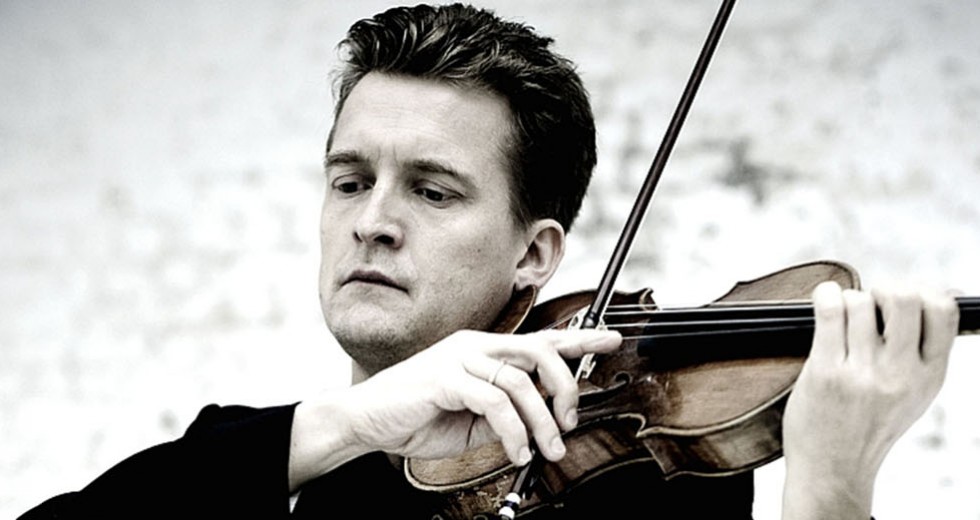
Violinist Christian Tetzlaff hasn’t changed his approach to pieces he’s been playing for decades.
For instance, in the two decades since he first recorded the Dvořák Violin Concerto, his approach to the work remains the same. “[It] hasn’t changed because I have always based how I perform on what the composer gives us,” he says of the concerto, which he will perform April 10-13 with the Chicago Symphony Orchestra under guest conductor Esa-Pekka Salonen. “But me personally, I have changed and my performing has changed — that I feel much more freedom on stage, and much more communication with the orchestra and with the audience.
“The impression would be very different, but you would not find that I play different tempi or different whatever, because I always think the piece exists in a certain frame, which is quite clearly given usually given by the composer, and I try to be free inside of that frame.
“I listen to recordings from 20 years ago and I see that I wouldn’t do anything different, and still I dislike them because there is [lacking] that element of freedom.”
Tetzlaff appeared in recital with pianist Lars Vogt for a Symphony Center Presents Chamber Music concert on Nov. 17, performing sonatas by Mozart, Bartók and Brahms. His return engagement consists of a mostly Slovak program that also will feature the overture from Janáček’s opera The House of the Dead and the composer’s Sinfonietta and Salonen’s own Nyx.
The Dvořák concerto,Tetzlaff says, is “a very good one,” but comparatively speaking, rarely performed. He’s played it often and even recorded it, “but that was 22 years ago.”
The reason for its rarity is that “it’s quite awkward for the fiddle player,” he says. “And it doesn’t sound as successful as, let’s say, Brahms or Tchaikovsky. But it is unfortunately not easier. And already the opening is so scary that one would say, ‘Why should I play it?’ But then you get rewarded. Once you are old enough to say, OK, if I [screw] it up, it can happen, then it’s possible to play it.”
Though the piece presents difficulties for the soloist, it offers a bonus for the orchestra, including the viola section, which has a large part.
Tetzlaff notes that Dvořák, a violist, also favored the viola in his chamber music. “I also love to play those viola parts,” he says. “In the String Sextet and Op.97 String Quintet, I played the viola. That’s a masterpiece.”
Now 47, Tetzlaff has been a performer since childhood and thus has developed a certain comfort level working with orchestras and conductors he knows. “That’s how my life gets better and better — I play with orchestras I’ve played with before; I play with conductors I like; I suggest some repertoire with some people. And so whatever I do now, I have a stronger feeling even before that that this is going to be a joyful experience.”
Of course, there’s also a certain comfort level that comes with time and experience. “On every scale, if you’re 25 or so, you always have the feeling that you have to prove yourself [to] the orchestra, the reviewers, the audience. I’ve been around a lot, so it’s not that they like me or not like me, but, ‘OK, I’ve done this, I’ve been here, this is who I am.’
“And that’s a comparatively comfortable situation.”
Eric E. Harrison is the classical music writer and reviewer for the Arkansas Democrat-Gazette in Little Rock.
VIDEO: Christian Tetzlaff performs the Mendelssohn Violin Concerto with the Berlin Philharmonic in a 2013 concert, via YouTube.